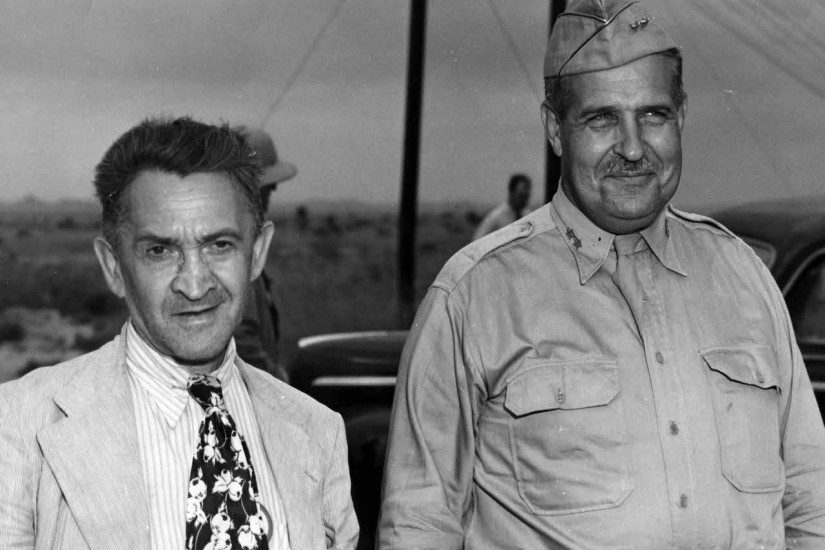William Laurence is the great neglected celebrity of the Manhattan Project. Mentioned in nearly every account of the atomic bomb saga, from Lansing Lamont’s 1965 “Day of Trinity” to Richard Rhodes’s seminal Pulitzer Prize-winning “The Making of the Atomic Bomb,” he’s the enigmatic reporter standing on the sidelines scribbling notes while Oppenheimer, Fermi, Teller, and the other Los Alamos geniuses stand in the cold New Mexico desert one July morning to watch the birth of their creation.
Yet none of these books, the films and TV movies such as “Fat Man and Little Boy” and “Day One,” or any of the other sundry retellings of the Manhattan Project story gives Laurence more than a passing reference. After encountering this mysterious figure so many times in so many different venues, I began to wonder: Who the hell was this guy, and how did he ever get to be the only reporter allowed to cover one of the biggest stories of the 20th century?
To the nuclear historian Alex Wellerstein, Laurence was “part huckster, part journalist, all wild card … he’s improbable in every way, a real-life character with more strangeness than would seem tolerable in pure fiction.” He has also become something of a moral bête noire for some who have questioned his motivations, ethics, and Manhattan Project reporting, seeing him either as an opportunist who parlayed a lucky break into a historical exclusive or a nefarious propagandist for the military establishment.
Yet Laurence was also, at least in his own era, one of the most important science writers in America, one whose influence, if not his lyrical and vivid prose style, persists to this day. The Princeton historian Michael D. Gordin, author of “Five Days in August” and “Red Cloud at Dawn,” notes Laurence’s seminal impact on popular perceptions of the Bomb: “[His] science-driven utopianism, stressing some of the potential positive outcomes of nuclear power and minimizing the threat to Americans … [was] strongly influential in those early years, and shaped some of the discourse even of those opposed to the positions he articulated.” Much of Laurence’s writing, Gordin goes on, “became just part of the way people talked about nuclear weapons for decades.”
